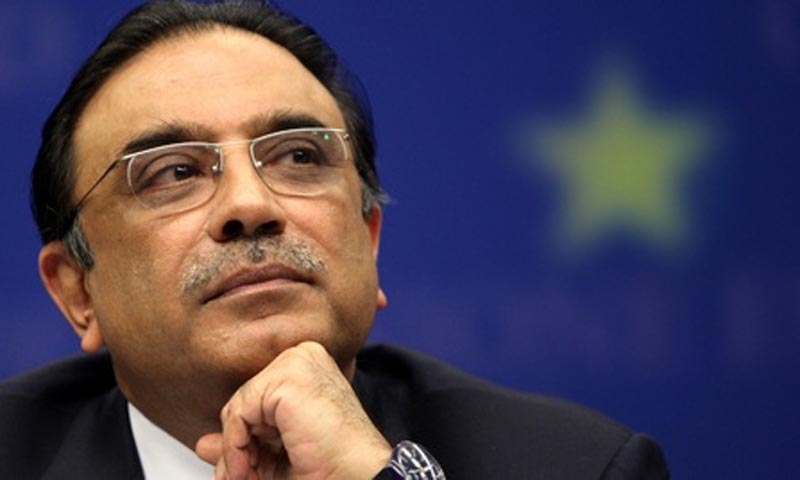
From 2007 till now the courts have released 1,964 alleged terrorists, says an official government document.
More serious still is the fact that of those released, 722 have rejoined terrorist groups while 1,197 are still actively involved in anti-state activities, according to the official document available with Dawn.
In other words, the document reveals that nearly 60 per cent of those acquitted of terrorist activities are still involved in anti-state activities. Though the wording of the document is vague it appears to suggest that those being monitored are still involved in militant activities.
According to the information, after their acquittal 12 of the suspected terrorists have been killed - four of them in drone attacks in the Federally Administered Tribal Areas (Fata) and eight during the operations conducted by security forces.
On the other hand, 33 of those acquitted have been re-apprehended and are currently confined to jails and internment centres under the ‘Action in Aid in Civil Power Regulations 2011.’
The provincial breakdown presents even more interesting details. The highest number of those released is from Khyber Pakhtunkhwa and Fata (1,308) followed by Islamabad, Gilgit-Baltistan and Azad Kashmir with 517, Punjab (83), Sindh (47) and Balochistan (9).
This also shows that the state is keeping track of those who have been suspected of terrorist activities and released by the courts.
Defence analyst Air-Vice Marshall (retired) Shahzad Chaudhry said intelligence agencies do keep check on the suspects who managed release in high-profile cases of terrorism.
They monitor their activities to make sure that after acquittal the suspects would not be involved in terrorist activities again.
Sometimes when the released suspect gets involved in an anti-state activity the agencies try to apprehend and detain him in an internment centre, he said. Since there is no legal cover for the detention after acquittal, certain quarters sometimes termed the detained suspect a missing person.
Interestingly, all nine of those acquitted by the courts in Balochistan have re-joined terrorist groups though in absolute numbers the other provinces outstrip Balochistan – in KP-Fata 555 (of the 1,308 acquitted) while in Islamabad-GB-AJK 97 (of 517) have rejoined terrorist groups.
In Sindh 22 out of the 47 released have re-joined terrorist groups while in Punjab the number is 39 out of 83 acquitted.
This also means that in terms of percentage, Balochistan is followed by Sindh where nearly 45 per cent of those released have rejoined terrorist groups (the figure for Balochistan is 100 per cent).
However, if the category of activities being confirmed is considered, Islamabad-GB-AJK leads with over 70 per cent of those released now still being suspected of ‘activities’ followed by KP-Fata.
However, the numbers are higher for those who are described as having their “activities confirmed” – 736 for KP-Fata; 403 for Islamabad-GB-AJK; 34 for Punjab and 24 for Sindh.
These figures show that in all the four provinces and Islamabad the majority of those acquitted have either “re-joined terrorist groups” or their activities “are being confirmed”.
The highest number of those arrested (after having been acquitted by the courts) is a miserly 13 for Islamabad-GB-AJK followed by 10 by Punjab, nine by KPK-Fata and one by Sindh.
On the other hand, no one acquitted by the courts in Balochistan has been ever re-arrested.
This is not the first document that has highlighted the trend of those acquitted returning to the activities they were suspected of.
According to a report of a security agency submitted to the Federal Review Board (a judicial body formed by the Supreme Court to examine the detention cases of suspects) the men accused of plotting attacks on former president Pervez Musharraf, the Danish embassy, Surgeon-General Mushtaq Baig and a military bus in R.A. Bazaar had re-joined the terrorist outfits after their acquittal by the courts.
The story of the doctor brothers
Dr Akmal Waheed, a cardiologist, and his brother Dr Arshad Waheed were accused of having links with Al Qaeda, attacking the convoy of the Karachi corps commander in 2004 and financially aiding and harbouring activists of the banned outfit, Jundullah.
They were, however, exonerated of the charges in 2006. Two years later in March 2008, it was reported that Dr Arshad was killed in a US drone attack in Waziristan.
Two accomplices of the acquitted brothers, Mohammad Ilyas alias Qari Jamil and Mohammad Rizwan alias Shamsul Haq, are in Adiala Jail in Rawalpindi. Both were tried, along with others, for allegedly attacking the Danish embassy, a serving army general and a military bus.
The district administration of Islamabad on the request of Inter Services Intelligence (ISI) issued their detention orders but the IHC in last year set aside these orders.
On December 15, 2010, the ATC of Islamabad acquitted Qari Ilyas of the charges of being involved in a suicide attack which had killed 15 policemen and two civilians near Islamabad’s Melody Market on July 6, 2008.
The policemen were guarding a congregation to mark the first anniversary of the July 2007 military operation against the clerics of the Lal Masjid. According to the prosecution, Qari Ilyas was allegedly giving instructions to the suicide bomber before he launched the attack on the policemen.
It has repeatedly been reported that the weak prosecution and half-baked evidence led to the acquittal of hundreds of suspects allegedly involved in high-profile terrorist activities.
Because of threats, backtracking of witnesses and weak evidence, the trial courts acquit the accused persons.
If the suspects are detained over some suspicions, they are set free at the high court level as most of the time intelligence agencies and police fail to produce credible evidence and sufficient supportive material to justify their detention.








